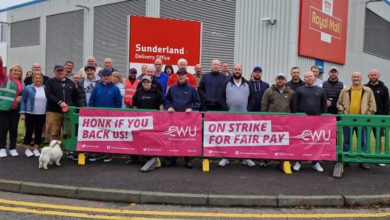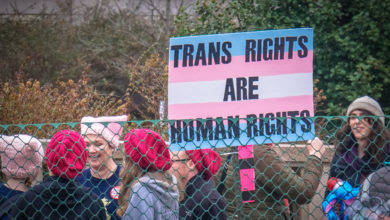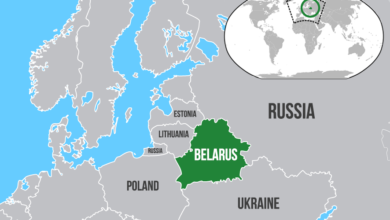The following article was written by a socialist activist living in London who participated in the Corbyn-led Labour campaign for the June 8 general election.
What a difference two years can make. I recall being at a major anti-austerity rally in the summer of 2015 in front of Parliament put together by the People’s Assembly Against Austerity (a coalition of progressive organizations created to fight against social cuts initiated by the Conservative Party after their return to power in 2010 alongside the Liberal Democrats). Speaking at the rally was an MP from Islington North who represented the far left-wing of the Labour Party – some may even say ‘fringe’ left – Jeremy Corbyn.
Corbyn was considered the odd one out, the MP you could rely on to come to your anti-war rally, your picket to defend the National Health Service, the demonstration for nuclear disarmament. You could rely on him to vote against his own party as he did time and time again, ruffling the feathers of the establishment on both sides of the Parliamentary aisle. Corbyn received a rapturous applause for his principled stance on behalf of the common people, as was the case for any speech he made anywhere. As the demonstration wound down, a Labour volunteer passed me a flyer for Corbyn’s campaign to become the next leader of the party.
A close friend of mine looked at it and said, “it’s great that he’s running. Too bad he has no shot of winning, though.”
We were the early naysayers, but we fixed up quickly as his odds of winning were slashed week by week. Now, on June 9, 2017, it’s the establishment of his own Party that is pleading for forgiveness and eating a slice of humble pie. It’s the mainstream media that has to concede that its attempts to undermine Corbyn have been futile – they maybe even helped to fuel his anti-establishment, radical agenda since people clearly no longer trusted them to tell the truth. Not only did Corbyn win the 2015 Labour leadership contest in more than convincing fashion, he held on against the attempts by the Parliamentary Labour Party to depose him in a vote of no confidence, winning an even bigger mandate as Party leader in 2016.
When Prime Minister Theresa May called a snap election in April, the pessimists or self-immolationists in Labour said the party would be dealt its worst defeat since 1931. May believed this narrative too, entering into the election with such arrogance and conceit that she barely found it necessary to campaign, taking a condescending attitude towards voters.
Here we are today, with Labour under Corbyn – the supposedly unelectable, fringe radical stuck in the 1970s – seeing the biggest vote increase for the party since 1945, and coming within reach of becoming the next Prime Minister. How wrong everyone has been.
The Debacle of “New Labour”
It is important to frame just how significant the past two years have truly been. The Labour Party suffered a humiliating loss in the May 2015 election, in which its leader Ed Miliband was thoroughly thrashed and the Conservatives secured a majority in Parliament, prompting his resignation and paving the way for a government that could deepen the cuts started by the Conservative-Liberal Democrat coalition government set up in 2010. The 2015 election was marked by major indifference by most young people I spoke to. In fact, I barely paid attention to it myself, finding it all too similar to capitalist elections in the United States in which Democrats and Republicans duelled it out, but at the end of the day there was nobody to truly vote for.
Some voted strategically, choosing the ‘lesser of two evils’ in Labour that had grown increasingly similar in outlook to the Tories since Tony Blair took the helm of the party in 1996, rebranding it as ‘New Labour’ and moving the party further away from any pretence of socialism and toward a centrist ‘third way’ (in fact, in a bitter twist of irony for Blair, he said when taking the reigns of Labour that year that ‘you really don’t have to worry about Jeremy Corbyn taking over.’)
New Political Forces Gain Momentum
What was most evident about the 2015 election is that progressive people didn’t vote with enthusiasm, unless they cast their ballot for the Green Party that had used the crisis of neoliberalism in Labour to their advantage, becoming at that time the fastest growing Party in Britain. After all, Labour had been discredited, rinsed long ago of any semblance of the ‘democratic socialism’ it claimed to represent. Trade union leaders spoke of the Greens as possibly replacing Labour as the party of the working class.
On the opposite side of the political spectrum, a xenophobic populist party billing itself the UK Independence Party that had split from the Conservatives had come out of the margins of politics and won the 2014 European election on a platform of holding a referendum to withdraw from the European Union. It seemed that the centre-left and centre-right that looked increasingly similar to one another were losing ground in the UK as everywhere – the crisis of the establishment was being manifested in people urgently looking for alternatives to address to their very own personal crises. The centre couldn’t hold much longer.
Corbyn’s Movement – and Revival of Socialist Politics
Nobody could honestly have predicted just two short years ago that the Corbyn phenomenon would become the new vehicle for the anti-austerity struggle and for the rejuvenation of radical politics in Britain. Corbyn himself was said to be a rather uncharismatic figure, though today I doubt seriously anyone would make the same claim. He wasn’t really interested in running for the Labour leadership to begin with, and apparently only did so because the so-called ‘hard left’ always put forward a candidate at times like this and now it was his turn to do so – and as is characteristic of Corbyn, he did so as his duty to the people he has been elected to represent in Parliament since 1983. Then, he won.
The next year, he won by an even bigger margin after the vote to leave the EU allegedly meant he was unsuitable to continue in his role after he backed remaining in the bloc. Still, tens of thousands of young people joined the Labour Party, creating the largest political organization in Europe backed by those drawn to the socialist program of Corbyn and his allies.
It was precisely these young people that made the difference in the general election of June 8, with a reported 62 percent of 18 to 25 year olds casting a vote. Traditional Conservative strongholds such as Canterbury – held by them since 1918 (yes, 99 years!) – swung over to Labour as a result of this surge in youth participation. Energized by Corbyn’s platform that was embodied in the Labour manifesto ‘For the Many, Not the Few’ that called for the abolition of university tuition fees and student debt, for major funding of the National Health Service, and for the building of one million new homes among other key points, the youth finally saw in Corbyn someone sincere, genuine and eager to listen to their hopes, dreams and desires – and not merely talk the same old political talk they had become sick of.
The Power of Being Genuine
On this point, it’s worth sharing the story of the first time I had a proper conversation with Corbyn. This was in 2016, and I could sense that he was tremendously busy, running from meeting to meeting at his constituency office building he shares with organizations such as the Stop the War Coalition and Nicaragua Solidarity Campaign, among other activist groups. Yet, he always managed to say hello to you with a smile in the hallway – even if it was just brief acknowledgement that you were there. I was struck by this quite rare characteristic, all so uncommon among those who have spent their life in political office.
When I had the opportunity to properly speak with him, he wanted to know about my take on the Trump phenomenon and recalled fondly his time in the United States when he addressed the massive anti-war rallies in 2003 organized in Washington D.C. and San Francisco by the ANSWER Coalition. He remembered traveling to Nicaragua for the first time in 1985 at the height of the Contra War, and spoke of how from that point forward he could never waiver in his struggle to fight the evils of U.S. and British foreign policy across the world. The biggest takeaway from that meeting, however, is that he was genuinely interested in knowing what my views were.
This was on full display throughout the spirited and phenomenal campaign he ran. When asked on live television about what leadership means to him and what characteristics of leadership he possesses, he refused to speak about his personal attributes. He spoke of the collective, spoke of listening to the people, and spoke of never ‘being so high and mighty’ to be a know-it-all.
Then he said something that resonated with people up and down the country ‘you can learn from everybody. Everybody knows something that you don’t.’ This is how he proved he’s more than up to the task of being a people’s champion, and quite possibly a people’s prime minister.
Monumental tasks confronting the left
Despite the fact that Labour technically lost, they really won. More importantly, however, the notion that hard left-wing policies would be unpopular, or that you couldn’t charge to victory on that basis, was thrown to the side. The naysayers in and out of the Labour Party are now mute.
Of course, the struggle for the soul of Labour is still in full swing. Corbyn’s position as leader of the Party is secure, and provides a strong basis for his socialist policies to be deepened. The debates within the radical and revolutionary forces outside of the party are sure to intensify. Some rightly point out that Labour cannot be the vehicle for the revolutionary transition to socialism, and on this basis refuse to participate within the party on any level. Others make the same argument about the reformist nature of the party, yet believe that it can function as a sort of united front for the radical left to engage in.
One thing is certain at this point – Corbyn has changed the face of British politics, pushing the conversation starkly to the left and opening up major new possibilities for revolutionary struggle. His leadership and the campaign he ran threw in the dustbin of history the idea of the ‘third way’.





